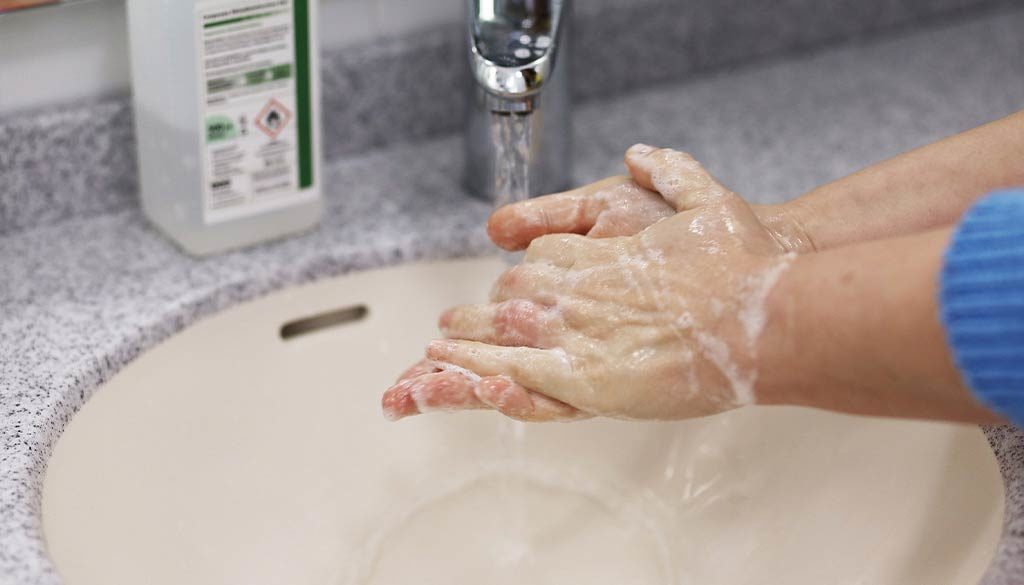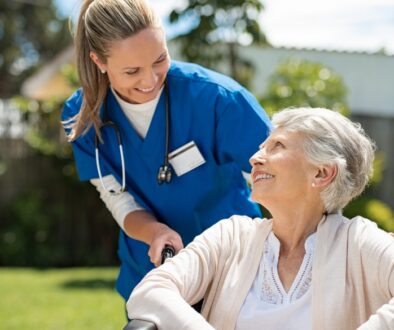The Neighbors are Taking Extra Precautions
By now most people are aware of the pandemic COVID-19 or the coronavirus. We thought it would be beneficial to acknowledge to our families that The Neighbors of Dunn County and Dunn County as a whole are very aware of this situation and are taking the proper steps recommended by the CDC and Wisconsin DHS. At this time Wisconsin has only had one confirmed case, and the individual has since been taken off of isolation as they are no longer ill or contagious. We understand the news of the situation in the state of Washington is frightening. At this time we have not had any cases locally or regionally. If this were to change we will take the proper steps to protect our residents. If there were to be an outbreak we will do everything we can to communicate this to you as fast as possible. In the meantime, the most important thing is for everyone to be educated about the virus and the proper steps to take to keep yourself healthy. Below is more information regarding COVID-19, helpful infection control tips, and the most credible resources for more information.
CDC is working across the Department of Health and Human Services and across the U.S. government in the public health response to COVID-19. Much is unknown about how the virus that causes COVID-19 spreads. Current knowledge is largely based on what is known about similar coronaviruses. Coronaviruses are a large family of viruses that are common in humans and many different species of animals, including camels, cattle, cats, and bats. Rarely, animal coronaviruses can infect people and then spread between people, such as with MERS-CoV and SARS-CoV. The virus that causes COVID-19 is spreading from person-to-person in China and some limited person-to-person transmission has been reported in countries outside China, including the United States. However, respiratory illnesses like seasonal influenza, are currently widespread in many US communities.
Current practices of infection control are what is important in the spread of any infection whether it is respiratory, norovirus, etc. We are following the recommendations given to us by the CDC and our Public health department in keeping up with the information needed – the coronavirus. In fact, seasonal influenza is far more prevalent and everyone should be taking the normal precautions against flu and other upper-respiratory diseases (washing hands thoroughly, covering when you cough or sneeze, staying home when you feel yourself getting sick, getting a flu shot, etc.).
Below are two resources that we have collected to which people are encouraged to review and use, both for their own purposes and for talking with others about this disease. Two sources of information regarding COVID-19 are:
Forms of infection control are as follows:
Hygiene etiquette involves practices that prevent the spread of illness and disease. A critical time to practice good hygiene etiquette is when you are sick, especially when coughing or sneezing. Serious respiratory illnesses like influenza, respiratory syncytial virus (RSV), whooping cough, coronavirus and severe acute respiratory syndrome (SARS) are spread by:
- Coughing or sneezing
- Unclean hands
- Touching your face after touching contaminated objects
- Touching objects after contaminating your hands
To help stop the spread of germs:
- Cover your mouth and nose with a tissue when you cough or sneeze.
- Put your used tissue in a wastebasket.
- If you don’t have a tissue, cough or sneeze into your upper sleeve, not your hands.
Remember to wash your hands after coughing or sneezing:
- Wash with soap and water, or use sanitizer
Keeping hands clean through improved hand hygiene is one of the most important steps we can take to avoid getting sick and spreading germs to others. Many diseases and conditions are spread by not washing hands with soap and clean, running water. If clean, running water is not accessible, as is common in many parts of the world, use soap and available water. If soap and water are unavailable, use an alcohol-based hand sanitizer that contains at least 60% alcohol to clean hands.
Cough etiquette is especially important for infection control measures in healthcare settings, such as emergency departments, doctor’s offices, and clinics.
One final practice that helps prevent the spread of respiratory disease is avoiding close contact with people who are sick. If you are ill, you should try to distance yourself from others so you do not spread your germs. Distancing includes staying home from work, visiting your loved ones or school when possible.
Perform routine environmental cleaning at home and at your workplace:
Routinely clean all frequently touched surfaces in the workplace, such as workstations, countertops, and doorknobs. Use the cleaning agents that are usually used in these areas and follow the directions on the label.
No additional disinfection beyond routine cleaning is recommended.
Keep Up To Date On News and Blogs
Find all of The Neighbors of Dunn County’s current news here.




